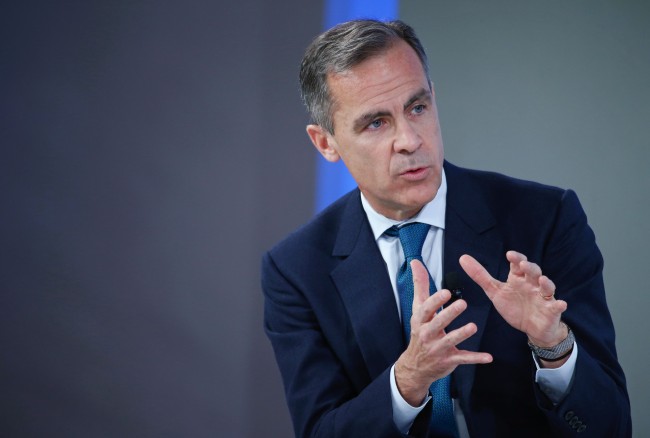In his second intervention since the UK voted to walk away from the EU, Carney laid the groundwork for the Bank’s rate-setting monetary policy committee (MPC) to slash interest rates even further below their record low of 0.5 per cent, reports CityAM.
More extreme and unconventional measures, such as quantitative easing, would also be considered by the Bank, with Carney indicating rate cuts or an extension to the £375bn bond-buying programme could come as early as the next MPC meeting on 14 July.
Speaking to an audience of business and finance figures at the Bank of England, Carney said: “In my view, and I am not pre-judging the views of the other independent MPC members, the economic outlook has deteriorated and some monetary policy easing will likely be required over the summer.”
Carney did not address his previous claim a vote to leave could tip the UK into recession, though his expectation that growth will fall considerably suggests the governor still believes a contraction is a distinct possibility.
After the results of the referendum became clear, markets immediately moved to fully price-in a cut to interest rates by the end of the year. Today’s comments will cement the idea the Bank is laying the groundwork to go even lower in its quest to protect the UK economy from the spillovers of the vote.
With both the Conservatives and Labour squabbling over their next leader, and the UK at odds with Europe over when to begin negotiations on formally exiting the EU, Carney also told the country to prepare for an extended period of uncertainty and lower economic growth.
“It now seems plausible that uncertainty could remain elevated for some time, with a more persistent drag on activity than we had previously projected,” he said.
“Moreover, its effects will be reinforced by tighter financial conditions and possible negative spillovers to growth in the UK’s major trading partners.”
Carney stood by his pre-referendum assertions that a vote to breakaway from the EU “could lead to a materially lower path for growth and a notably higher path for inflation”. He added the UK should expect “lower real incomes” and is facing the “possibility that heightened uncertainty may last a while longer”.
The Bank also announced it will extend its programme of special weekly liquidity auctions until September to allow banks to swap their assets for cash. In the most recent auction – which took place on Tuesday – lenders asked for £3.1bn of emergency credit from the Old Lady.
While stressing the Bank would take a “whatever it takes” approach to protecting the UK, Carney added he could not do everything alone.
He said: “Over the coming weeks, the Bank will consider a host of other measures and policies to promote monetary and financial stability.
“Part of that plan is ruthless truth telling. And one uncomfortable truth is that there are limits to what the Bank of England can do. The future potential of this economy and its implications for jobs, real wages and wealth are not the gifts of monetary policymakers.
“In particular, monetary policy cannot immediately or fully offset the implications of a large, negative shock.”
Addressing the impasse that is likely to ensue over the summer as the government descends into a potentially bitter leadership contest and arguments with leaders on the continent, Carney said swift clarification of the UK’s future relationship with the EU was needed.
“A plan for the UK’s current challenges would include a comprehensive strategy for engaging with the EU and the rest of the world – including clarifying the UK’s future trading arrangements, calibrating its openness to migration, ensuring the continuity of capital flows, and confirming the appropriate regulatory framework for the UK financial system.”


